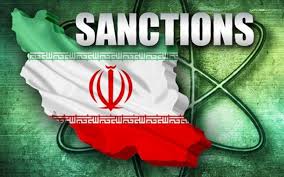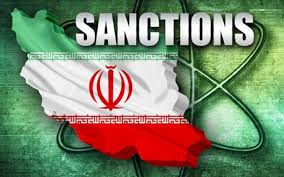
The European Union is developing a new mechanism for payment that would allow companies and countries to trade with Iran and still avoid the US sanctions on Tehran, announced the block’s foreign policy chief. This announcement further illustrates the divide between the United States and its ally, the EU.
A joint statement released by the remaining members of the Iran nuclear deal said that the mechanism, known as the "special purpose vehicle" (SPV), would aim to "assist and reassure economic operators pursuing legitimate business with Iran, France, Britain, Germany, Russia and China had participate din the Iran nuclear deal in addition to the US and are still supporting the deal from which US president Donald Trump has dissociated from the US.
"This will mean that EU member states will set up a legal entity to facilitate legitimate financial transactions with Iran and this will allow European companies to continue to trade with Iran in accordance with European Union law and could be open to other partners in the world," Federica Mogherini, the EU's high representative for foreign affairs, told the UN General Assembly on Tuesday.
She said that experts would work out the technical details soon.
A umber of Iranian industries are already facing the US sanctions which include its aviation, metals, automotive industries. The US sanctions has also impacted the ability of Tehran to trade gold and acquire dollars. The Trump administration is set to impose a second round of sanctions on the country which would be directed at the oil industry of the country that makes up about 70 per cent of the exports of Iran. Iran is the world's seventh-largest oil producer.
The Obama administration had headed the 2015 Iran nuclear deal which is officially known as the Joint Comprehensive Plan of Action. The deal was signed by the aforementioned five world powers, the U.S. and Iran which effectively lifted international economic sanctions on Iran against Tehran stopping its nuclear program. IN May this year, Trump pulled the IS out of the deal alleging that Iran did not keep its part of the deal and describing the deal as the "worst deal ever."
The new sanctions on Iran set to come into force from November are also applicable to any company or country that transacts with Iran. The penalty would be that such companies and countries would be struck off from the U.S. financial system. This threat has already resulted in a number of foreign companies exiting the Iranian market while a number of countries have already significantly reduce importing of Iranian oil.
But the other supporters of the Iran deal are on the lookout of means that would allow companies of their countries to continue trade with the Iran.
The SVP would allow countries and companies to evade the impact of the US sanctions as it would act as a "clearing house" of sorts for transactions with Iran. Many view this as a direct exhibition of opposition to Trump’s decision of sanctions of Iran by some of the closest trade allies of the US.
(Source:www.cnbc.com)
A joint statement released by the remaining members of the Iran nuclear deal said that the mechanism, known as the "special purpose vehicle" (SPV), would aim to "assist and reassure economic operators pursuing legitimate business with Iran, France, Britain, Germany, Russia and China had participate din the Iran nuclear deal in addition to the US and are still supporting the deal from which US president Donald Trump has dissociated from the US.
"This will mean that EU member states will set up a legal entity to facilitate legitimate financial transactions with Iran and this will allow European companies to continue to trade with Iran in accordance with European Union law and could be open to other partners in the world," Federica Mogherini, the EU's high representative for foreign affairs, told the UN General Assembly on Tuesday.
She said that experts would work out the technical details soon.
A umber of Iranian industries are already facing the US sanctions which include its aviation, metals, automotive industries. The US sanctions has also impacted the ability of Tehran to trade gold and acquire dollars. The Trump administration is set to impose a second round of sanctions on the country which would be directed at the oil industry of the country that makes up about 70 per cent of the exports of Iran. Iran is the world's seventh-largest oil producer.
The Obama administration had headed the 2015 Iran nuclear deal which is officially known as the Joint Comprehensive Plan of Action. The deal was signed by the aforementioned five world powers, the U.S. and Iran which effectively lifted international economic sanctions on Iran against Tehran stopping its nuclear program. IN May this year, Trump pulled the IS out of the deal alleging that Iran did not keep its part of the deal and describing the deal as the "worst deal ever."
The new sanctions on Iran set to come into force from November are also applicable to any company or country that transacts with Iran. The penalty would be that such companies and countries would be struck off from the U.S. financial system. This threat has already resulted in a number of foreign companies exiting the Iranian market while a number of countries have already significantly reduce importing of Iranian oil.
But the other supporters of the Iran deal are on the lookout of means that would allow companies of their countries to continue trade with the Iran.
The SVP would allow countries and companies to evade the impact of the US sanctions as it would act as a "clearing house" of sorts for transactions with Iran. Many view this as a direct exhibition of opposition to Trump’s decision of sanctions of Iran by some of the closest trade allies of the US.
(Source:www.cnbc.com)





